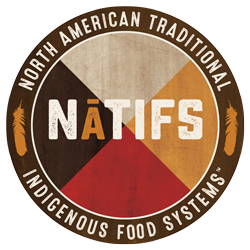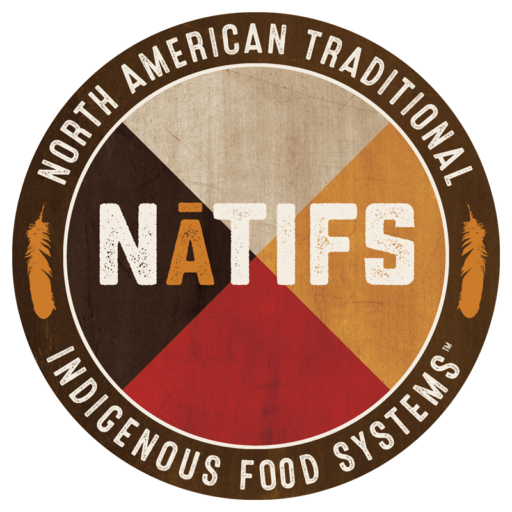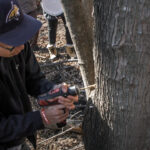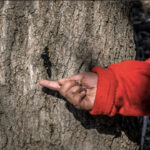At North American Indigenous Food Systems (NATIFS), we believe in the power of Indigenous food practices to mitigate and adapt to the impact of climate change. We stand committed to revitalizing traditional, resilient, and diverse Indigenous food systems, such as sustainable foraging and regenerative agriculture.
Climate change presents a grave threat to global food security. Rising temperatures, water scarcity, land degradation, disrupted ecosystems and biodiversity loss jeopardize our ability to feed the most vulnerable, hindering progress in eradicating hunger, malnutrition and poverty. Indigenous peoples are among the communities most impacted by climate change, a crisis we did not create. Indigenous people are becoming climate refugees throughout the world, as climate change makes homelands uninhabitable.
Indigenous food systems draw on biodiversity, permaculture, traditional growing methods, and land stewardship to provide sustenance and medicinal resources for our communities while safeguarding the planet. This approach contrasts starkly with the destructive forces of colonization that have been normalized and have led us into this environmental crisis.
Indigenous peoples have long been the stewards of the world’s most precious ecosystems, with their lands hosting 80 percent of global biodiversity. In contrast, modern industrial agriculture is responsible for 80 percent of global deforestation. It’s time for Western society to embrace the reciprocal relationship Indigenous peoples have long upheld with the Earth.
Harnessing Indigenous knowledge and technologies for land, water and food resource management under changing climate conditions is essential.
Indigenous peoples’ practices of preserving food and seeds for food security, emphasizing sustainable resource use, and nurturing reciprocal relationships with nature are potent tools in climate change mitigation and adaptation.
Regenerative agriculture, an ancient concept rooted in Indigenous knowledge, recognizes the interconnectedness of humans and nature. It promotes farming methods that enrich the land, ensuring its ability to sustain future generations.
Emphasizing locally sourced, sustainably grown food and shifting towards plant-heavy diets are powerful strategies to reduce greenhouse gas emissions. Local food production is less energy-intensive and requires minimal transportation, decreasing air pollution. Increased plant consumption over meat consumption reduces methane emissions, a potent greenhouse gas.
Food is more than sustenance; food is medicine – for people and the planet. Our disconnection from traditional, Indigenous foods has led to pervasive food-related health disparities, making functional nutrition an imperative. By making significant changes in the food and agriculture sector, we can address climate change, reduce food waste, and shift to more plant-based diets. These changes not only reduce emissions but also improve nutrition and food security, combating global malnutrition and food-related diseases.
Indigenous peoples have for centuries planted various crops together to promote biodiversity and soil health. Techniques like the Three Sisters and Milpa methods (squash, corn and beans planted together) showcase the symbiotic relationship between plants, soil microorganisms, insects, and animals. These methods offer not only a sustainable way to produce food but also resilience in the face of climatic challenges. The US federal government has recently recognized the importance of Indigenous input and distributed a guide for recognizing and including Native knowledge in federal research, policy and decision-making.
NATIFS sees Indigenous food practices as a beacon of hope in the fight against climate change. By embracing and supporting traditional methods, we can steward an ecosystem that not only nourishes people and the planet but also empowers tribal communities economically and culturally.
Together, we can fulfill the vision of our ancestors and ensure a sustainable future for people and the planet.
Call to action:
- Invest in traditional farming and agriculture practices
- Support Indigenous food sovereignty and improve health by investing in Indigenous food systems that increase access to and economic opportunity around healthy Indigenous food
- Showcase cultural food producers
- Build regional food systems
- Ensure local control of food systems
- Increase access to Indigenous education
- Enforce environmental protections
- Support Indigenous initiatives globally
- Call out cultural appropriation
- Identify colonialism in action
- Support your fellow humans in need
- Create a relationship with the plant world
- Help dismantle white supremacy
- Create less trash
- Grow more food






